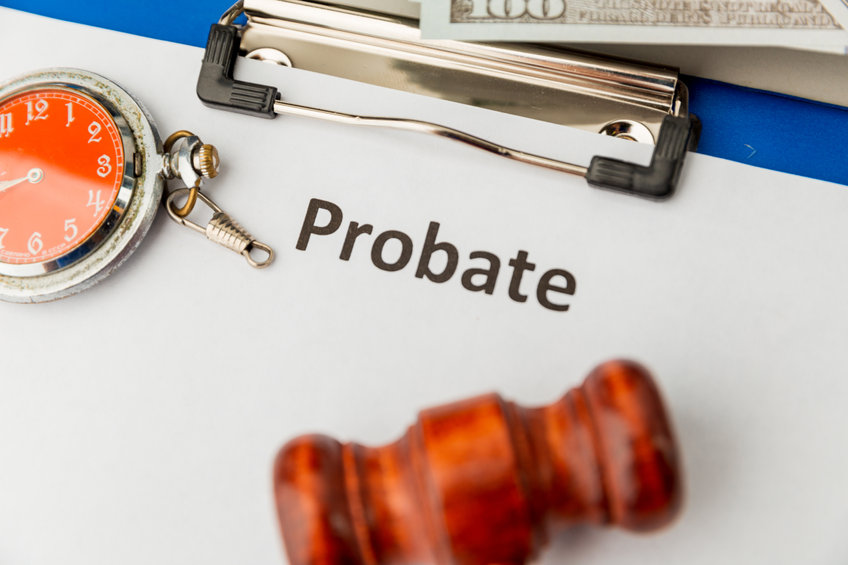An executor ties up personal and/or business affairs after someone passes away. The executor may also be referred to as a personal representative in some states. The executor may include more than one person or, in fact, a financial institution who stands in for the deceased party. The executor will gather the assets, settle any business affairs, file all necessary tax returns and distribute the assets as outlined in the will.
An executor is a person named in the will to carry out the wishes of the deceased person. Unless there is a valid objection, a probate judge will appoint the individual or institution the deceased person named in the will to be executor. The executor is the person you may charge with dealing with the personal and financial affairs of your estate in the event of your death. It falls to the executor named in the will to ensure the decedent’s final wishes are carried out.1 Should a person die without a will (and assuming they own property of some value), the court will appoint someone to act on their behalf as an administrator, which could be a bank or trust company, an individual, or a group of people.
Selecting the executor
Selecting the executor is a key decision that will impact the orderly disposition of the estate, so it is important to choose wisely. It is a good idea to choose someone who has a good understanding of the decedent’s intentions, who is financially stable, trustworthy and conscientious. The responsibilities can be cumbersome and take months (or even longer) to wind down.
They may include settling with insurance companies, creating an inventory of possessions, selling property, disbursing funds and paying bills. While there may be responsibilities best handled by a CPA or a lawyer, the executor may engage professionals and pay their fees from the estate, leaving less for the beneficiaries. The executor cannot be a minor, convicted felon, or a non-U.S. citizen. The executor role can be time-consuming and has the potential for liability. The executor can be found liable should beneficiaries experience a loss due to the mismanagement of estate funds.
A person named as executor has the right to refuse the position. If an executor learns of his or her appointment following the death and does not want to serve, they can file with the court a document to refuse the role.
Executor’s responsibilities
The person named as executor will file the will and the death certificate shortly after the date of death. They have the authority and responsibility to:
• Obtain a copy of the latest will.
• Read the will and understand the instructions provided.
• File a petition with the court to admit the will to probate.
• Collect all of the decedent’s assets.
• Notify Social Security and modify payments, if applicable (e.g., benefit to spouse/partner).
• If the decedent had a safe deposit box, take possession of it and its contents.
• Consult with banks and savings and loans in the area to find all accounts of the deceased.
• Check for cash and other valuables that may be hidden around the home.
• Transfer all assets to the name of the estate (or any appropriate trusts) and continue to collect dividends and interest on behalf of the estate.
• Locate and inventory all real estate, mortgages, leases, and tax information.
• Provide immediate management for rental properties.
• Arrange ancillary administration for out-of-state property.
• Collect money owed to the deceased and interests in estates of other deceased persons.
• Locate all household and personal effects and other personal property in order to inventory and protect them.
• Collect all life insurance proceeds payable to the estate.
• Find and safeguard all business interests, valuables, personal property, important papers, residences, vacation homes, and other properties.
• Inventory all assets and arrange for appraisal for such items.
• Determine liquidity needs.
• Assemble bookkeeping records.
• Review investment portfolio(s).
• Sell appropriate assets. • Pay valid claims against the estate.
• Reject improper claims and defend the estate, if necessary.
• Pay any state and federal taxes that may be due.
• File income tax returns for the decedent and the estate.
• File federal estate tax return and state death and/or inheritance tax return.
• Prepare statement of all receipts and disbursements.
If you or someone you know is the executor of an estate contact us for a free financial physical to assist in providing the best the best advice along your trying journey. Our Certifed Financial planners can review and analyze your total estate and provide insights that you or the estate may not know.
Securities and advisory services offered through LPL Financial, a registered investment advisor. Member FINRA/SIPC.

